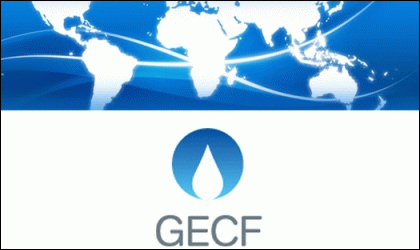The Gas Exporting Countries Forum is often compared with Organization of Petroleum Exporting Countries (OPEC). Both are industry-specific intergovernmental organizations controlled by major exporters. They one common goal: to safeguard stable and foreseeable future for energy sources of global importance. Nowadays the GECF member states mainly focus on soft targeting of excess market volatility - 1970s crisis proved that price shocks and bubbles can be ruinous for economic growth. All concerned parties in the natural gas industry unanimously agreed on the real need for an international organization, which can become a unique global moderator with broad scope of functions. On the first GECF meeting in Doha (Qatar) they decided that market stability and reliable power supply could be achieved through long-term gas contracts and investments to infrastructure projects.
by LNG World News
These two measures enable predictability: planning allows producers to explore new fields and invest to ventures in remote areas (for example, Russian-Japanese -Sakhalin-2 - project). However it is important to mention that Forum's decisions are non-regulatory. The GECF is an open platform, not a cartel. -Even though the GECF Ministers support oil-gas price parity, this does not imply that the Forum has plans to regulate the volume of gas exports or to determine prices -, writes Leonid Bokhanovsky, GECF Secretary General, in his review -GEFC: A new participant in the natural gas market -. This statement is especially important if one considers the pressure that the European Union and the US are currently trying to put on the international gas market.

by CERA Week
World's leading natural gas producers - Algeria, Bolivia, Egypt, Equatorial Guinea, Iran, Libya, Nigeria, Oman, Qatar, Russia, Trinidad and Tobago, United Arab Emirates and Venezuela - all together accumulating about 70% of the world proved natural gas reserves - are now preparing for the 2nd Gas Summit in the course of the ongoing Board meetings. Iran's President Mahmud Ahmadinejad is expected to be one of the special guests of the Moscow forum. It is reported that he would like to discuss with Russia's President Vladimir Putin the perspectives of the South Pars/North Dome field, one of the largest deposits in the world. According to the International Energy Agency (IEA), the field holds an estimated 1, 800 trillion cubic feet (51 trillion cubic meters) of natural gas and some 50 billion barrels of natural gas condensate. These high-profile talks will prove that the GECF has really become a platform for independent international dialogue, because the Islamic Republic remains under unilateral Western sanction on its crude oil and natural gas exports.
GECF will inevitably gain momentum, as natural gas is growing in importance in the global energy mix: last year annual consumption growth rate reached 1.7 percent. On the 1-2 July 2013 producers and consumers will witness the new stage in the development of the global energy sector.






